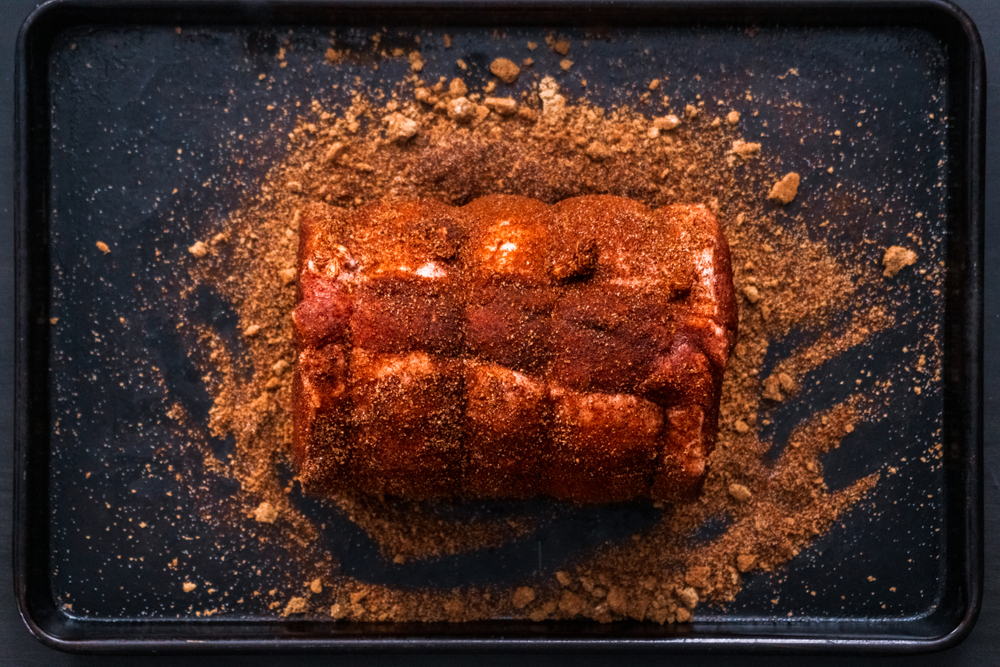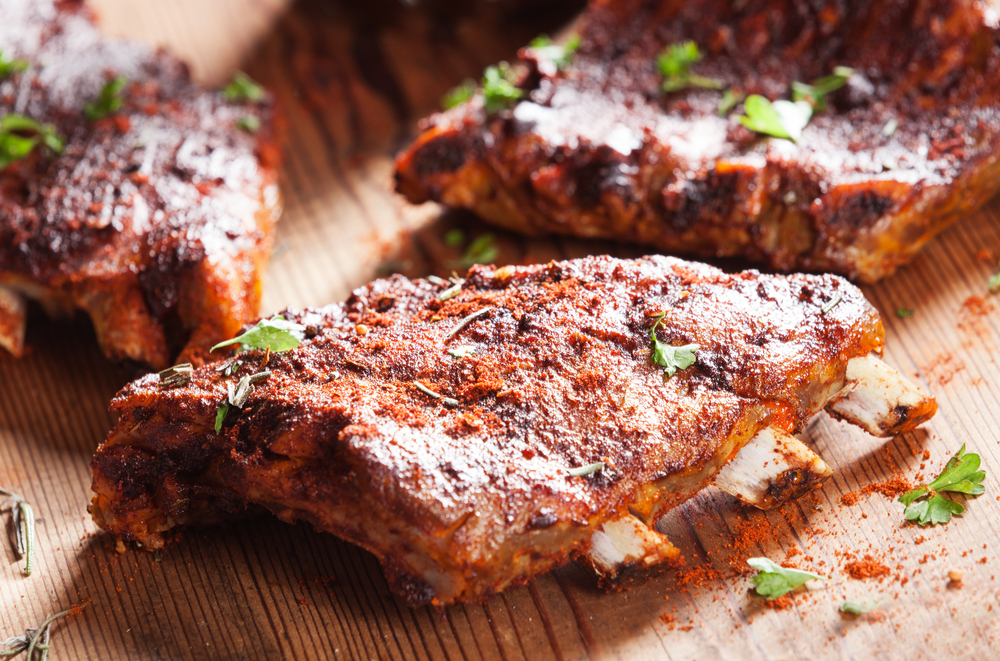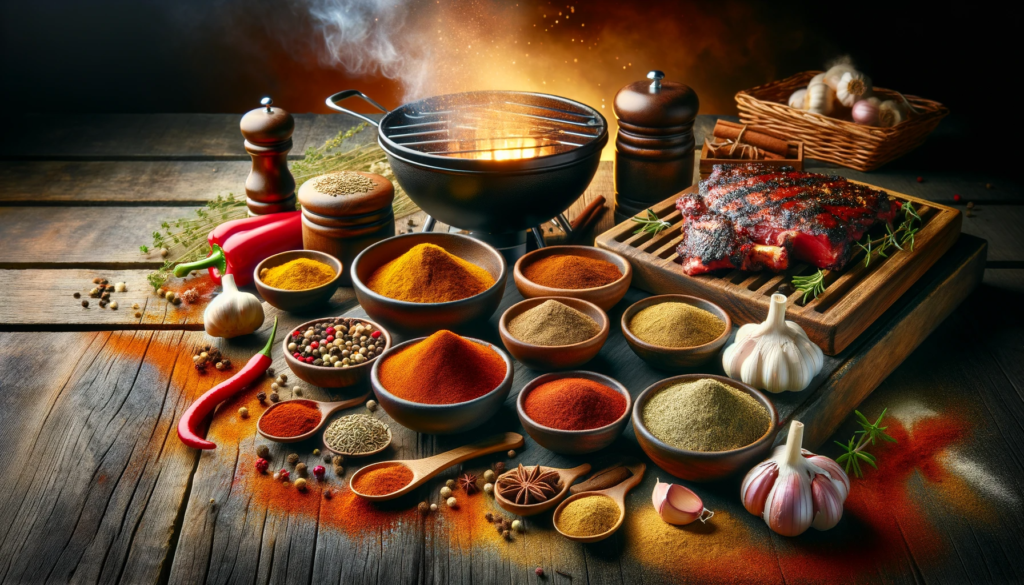An African barbeque is not merely about the grilling; it’s a ritual, a celebration of flavors that dance across the palate. African spice rubs are the heart and soul of this culinary tradition, with each region of the continent boasting its signature blend. Welcoming an array of spices into your kitchen will not just broaden your culinary horizons but will enrich your grilling with exotic and bold flavors. This guide will take you on a journey into mastering the artistry of African spice rubs and how to utilize them to turn simple grilling into a gourmet experience. So, let’s embark on this aromatic adventure together!
Introduction to African Spice Rubs for Grilling
African cuisine is rich with deep-rooted traditions, and spice rubs play an integral role in their illustrious grilling culture. These intricate mixes of ground spices serve as a dry marinade, imparting robust flavors and tender results. Before the grill even ignites, applying an African spice rub promises a dish vibrant with character and history. Knowing the essential elements that compose these spice rubs will set the foundation for an unforgettable grilling experience.

The Significance of Spice Rubs in African Grilling Traditions
In African grilling traditions, using spice rubs isn’t a mere afterthought; it’s a testament to a culture’s love for rich, bold flavors. Spice rubs serve a dual purpose – they add zest and zing to the meat or vegetables but also help to soften and tenderize the protein before it hits the flame. Each country and community within Africa has its unique blend, which is often a well-guarded secret passed down through generations. As we explore these spice rubs, we gain a deeper appreciation for Africa’s diverse culinary history and the significant role these flavors play in their food culture.
Essentials of Crafting the Perfect African Spice Rub
Selecting and Blending African Spices for Rubs
Crafting the perfect African spice rub begins with a selection of spices. With an incredibly varied palette, the key lies in combining these flavors to achieve a harmonious yet complex taste profile. Staples such as coriander, cumin, ginger, and cardamom form the base, while regional specialties add an authentic touch. Blending requires precision and patience, as each spice must be measured and ground to unlock its full aromatic potential, setting the stage for a sublime grilling experience.
Balancing Flavors for Optimal Taste Impact
After selecting your spices, building your African spice rub becomes a delicate balancing act. One must consider the heat of chili peppers against the sweetness of cinnamon and turmeric’s earthiness against paprika’s brightness. This elemental interplay of flavors will give the final rub its culinary edge – a careful calibration that will speak volumes when fused with fire and smoke. Understanding this balance is key to crafting a spice rub that doesn’t overpower but rather enhances the innate flavors of the grilled food.
Popular African Spices for Grilling Rubs

Berbere for a Spicy Kick
Berbere, a fiery blend hailing from Ethiopia, is synonymous with heat and complexity. This ruby-red concoction typically comprises chili peppers, garlic, fenugreek, and warm spices. When massaged onto meat or vegetables, Berbere provides a spicy kick and imparts a depth of flavor that’s unmistakably African. Grilled dishes adorned with a Berbere rub become rich tapestries of taste, perfect for those seeking to ignite their palate with traditional heat.
Ras el Hanout for Aromatic Depth
Translating to “head of the shop,” Ras el Hanout represents the apex of North African spice mixes. It can include over a dozen spices, such as nutmeg, allspice, mace, and more – each selected to add aromatic depth to your grilled dishes. There’s no single definitive recipe for Ras el Hanout; each blend reflects the individual tastes and traditions of the person preparing it. The resulting grilled meats and vegetables radiate with a perfume-like scent and a flavor as rich as its history.
Suya Spice for a Nutty, Smoky Flavor
Suya spice, a cornerstone of Nigerian barbecues, is famous for its nutty and smoky character. Ground peanuts, or sometimes peanut butter powder, blend with spices like ginger, paprika, and onion powder to create this distinct West African flavor. The Suya spice mix is generously applied to skewered meats that are then grilled to perfection, creating an unforgettable umami experience with a slight nutty crunch and a warm smokiness that is truly addictive.
Harissa for Fiery Heat
The North African hot chili pepper paste known as Harissa is revered for its fiery heat and smoky, garlicky flavor. Dry Harissa spice blends have gained popularity recently for their convenience and versatility in grilling. Combining roasted red peppers, Baklouti pepper, serrano peppers, and other hot chili peppers, along with spices like coriander, caraway seeds, and cumin, create an intense heat balanced by the spices’ fragrance. Whether used as a rub or marinade, Harissa transforms ordinary grilling into a bold and zesty affair.
Step-by-Step Recipes for African Spice Rubs
Classic Berbere Rub
To create your own Classic Berbere Rub, start by toasting fenugreek, cumin, coriander, and cardamom pods in a dry pan to release their fragrances. Cool them down and grind them finely. Mix in powdered elements, including dried chili, sweet paprika, salt, garlic powder, and ground ginger. Store in an air-tight container and use liberally for a spicy, warming kick on any grilled dish. Embrace the heat and enjoy a piece of Ethiopian culinary tradition with your next cookout.
Ras el Hanout Marinade
To whip up a Ras el Hanout Marinade, begin by meticulously blending spices such as nutmeg, coriander, turmeric, cayenne, allspice, and cloves. Add this to a base of olive oil, lemon juice, and garlic to form a rich, aromatic paste. Marinate your meat or vegetables for several hours or overnight to allow the flavors to infuse deeply. As the spices meld together, they transform your marinade into a North African delicacy that is both complex and harmonious.
Suya Spice Mix for Meats and Vegetables
Constructing a Suya Spice Mix calls for blending ground peanuts or peanut powder with hot paprika, garlic powder, onion powder, cayenne pepper, and a touch of ginger. This combination gives you a rich, smoky, and slightly spicy flavor profile. Rubbing this mix onto meat, particularly beef or chicken, and letting it rest for a few hours before grilling will ensure every bite is infused with this signature Nigerian flavor. Vegetables like bell peppers and onions also benefit from the Suya’s nutty enhancement.
Harissa Dry Rub Recipe
To make a Harissa Dry Rub, start with a base of smoked paprika, cumin, coriander, and caraway seeds. Grind these together with dried hot chili peppers of your choice, depending on the desired heat level. Sea salt, garlic powder, and mint round out the spice blend, adding layers of flavor. This versatile rub can be sprinkled on meats and vegetables just before grilling, offering a quick ticket to vibrant North African-inspired dishes with a pleasantly powerful kick.

Techniques for Applying Rubs to Different Types of Grilled Foods
Rub Application Tips for Meats, Poultry, and Vegetables
When applying spice rubs to meats, it’s crucial to ensure the spices penetrate the surface generously. For thicker cuts, score the meat lightly to allow deeper flavor infusion. Poultry benefits from going under the skin, where the rub can mingle directly with the meat. Conversely, vegetables should be lightly oiled before the rub application to help the spices adhere and promote caramelization. Each food type requires a unique approach to maximize the impact of your flavorful African spice rubs.
Marinating Times for Optimal Flavor Infusion
The rule of thumb for marinating with spice rubs is simple: the longer, the better – up to a point. An overnight stint in the refrigerator will allow the complex spice profiles to work their magic for robust meats like beef and lamb. Milder meats like chicken or pork can take a shorter marination time of a few hours. With their delicate structures, vegetables and seafood require the least time – often just an hour. Regardless of the duration, ensure a consistent coating and a sealed container to lock in those aromatic compounds.
Grilling with African Spice Rubs
Grilling Techniques to Enhance Spice Flavors
Grilling with African spice rubs requires specific techniques to elevate the spice flavors. High heat will sear the spices, creating a mouthwatering crust, but be cautious as sugars and spices can burn quickly. Consider using indirect heat for cooking larger cuts more thoroughly while preserving the piquancy of the rub. Rotating the food occasionally avoids charring and encourages even cooking. Combined with a carefully selected rub, these methods can result in an authentic African grilling masterpiece.
Pairing Spiced Foods with Side Dishes and Sauces
Pairing your boldly seasoned grilled dishes with the right side dishes and sauces can turn a good meal into an extraordinary dining experience. Balance out the strong flavors of your spiced meats with cool, refreshing sides like cucumber salad or tangy coleslaw. Creamy dips, yogurt-based sauces, or fresh chutney can complement and tame the spices’ heat. Starches such as couscous or rice provide a neutral base to soak up all the rich flavors, ensuring a well-rounded meal that celebrates the full spectrum of African-inspired grilling.
Health Benefits of Using Natural Spices in Grilling
Nutritional Advantages of African Spices
Embracing the use of natural spices in grilling isn’t only a journey for your taste buds – it also offers significant health benefits. Many African spices have anti-inflammatory properties, and others like cinnamon and turmeric, are known for their antioxidant content. Spices can also act as a substitute for salt, reducing sodium intake while maintaining a high flavor profile. Spice rubs are an excellent way to punch up the taste without adding unnecessary fats or sugars, contributing to healthier, flavor-packed grilling options.
FAQs on African Spice Rubs for Grilling
How Much Spice Rub Should I Use?
The amount of spice rub to use largely depends on personal taste and the type of meat or vegetables you are seasoning. A good rule is to cover the surface evenly and thoroughly. About 1 tablespoon of rub per pound is a good starting point for most meats. If you prefer a more intense flavor, you can increase the rub, just be mindful of the spice heat levels to ensure it doesn’t become overwhelming. Always rub the mix firmly into the meat or veggies to ensure it adheres well.
What is the Best Way to Apply a Spice Rub?
Clean your meat or vegetables for the best results, then pat them dry to remove any excess moisture. Apply a small amount of oil to help the spice rub stick to the surface. Sprinkle the rub evenly over the food and then use your hands to massage it in gently. This ensures that the spices penetrate the meat’s fibers or the vegetables’ crevices, which helps maximize the flavor after grilling.
Should I Let the Rub Marinate on the Food?
Allowing the rub to marinate on the food can significantly enhance the flavor. If time allows, marinate meats with the rub for several hours, or even overnight, in the refrigerator. The salt and spices will work their way into the meat, tenderizing it and infusing it with flavor. With their more delicate textures, vegetables and seafood need less time — generally, an hour or two is sufficient. Just ensure to cover and refrigerate the marinating food for safety.
How Do I Prevent the Spice Rub from Burning on the Grill?
Monitoring the cooking temperature and using indirect heat when necessary is essential to prevent the spice rub from burning on the grill. If using a charcoal grill, arrange the coals on one side, allowing the other side for cooking with indirect heat. On a gas grill, turn on burners to heat up one part and use another part for cooking. Cook your spiced items on the cooler part of the grill and avoid exposing them to high-open flame to minimize the burning of spices.
Is it Better to Use Fresh or Dried Spices for Rubs?
Dried spices are generally more potent and concentrated than fresh ones, making them ideal for creating spice rubs. They also stick better to the food’s surface, giving a more intense flavor when grilled. Fresh spices and herbs can lose their potency when subjected to the grill’s heat, although they can be used for garnish or in a marinade. The dry form of spices also allows for longer storage, meaning you can mix a larger batch of rub and keep it handy for future grilling sessions.
Can I Store Leftover Spice Rub?
Yes, you can store leftover spice rub for future use. Make sure to keep it in an airtight container, away from heat and light. Spices can lose their strength over time, so using the stored rub within six months is best for the best flavor. Always use a clean, dry spoon to handle the spice rub, avoiding contamination. Labeling your spice rub with the date of creation is also a good practice to keep track of its freshness.
